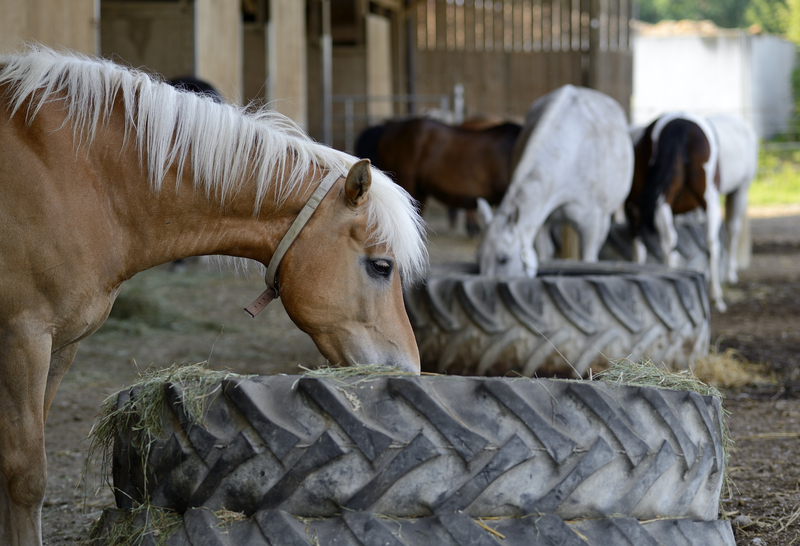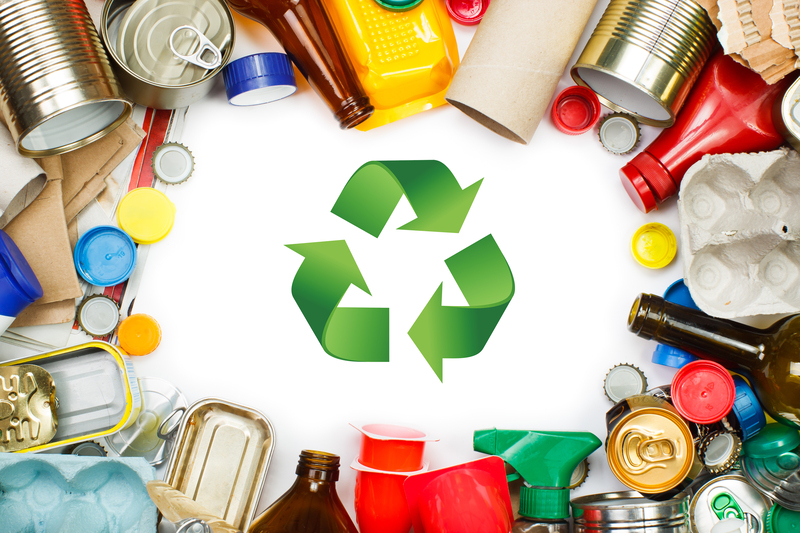Unlock Cost-Effective Strategies for Bulky Waste Disposal
Bulky waste--think old furniture, broken appliances, garden debris, and large electronics--can quickly overwhelm your living or working space. Disposing of such items responsibly isn't just about reclaiming room; it's about protecting the environment and, ideally, doing so without breaking the bank. If you're seeking affordable ways to get rid of bulky waste, you're in the right place. Below, you'll discover a comprehensive guide to cost-effective strategies for bulky item disposal that are not only good for your wallet, but also for your community and the environment.
Understanding Bulky Waste: More Than Just 'Big Trash'
Bulky waste, also known as large item waste or bulk trash, refers to items too big to be disposed of through regular waste collection services. Examples include:
- Mattresses and bedframes
- Old sofas and chairs
- Large appliances (fridges, ovens, washing machines)
- Carpets and rugs
- Garden waste (branches, tree stumps)
- Renovation debris
These items pose specific challenges--handling, transport, and often, specialized disposal techniques. But with a strategic approach, disposing of bulk items doesn't have to be expensive or wasteful.

1. Reuse Before You Refuse: Extending the Life of Bulky Items
Before considering disposal, ask: could this item be reused? Extending the lifespan of a product is often the most cost-effective bulky waste strategy. Here are some smart ways to reuse:
- Repurpose furniture: Old dressers can become tool benches. A battered table could make a great garden workstation.
- Upcycle materials: Salvage wood, metal, or fabric for DIY projects.
- Community swaps: Organize a local swap event or use online platforms to offer items to others.
Tip: Upcycling bulky waste not only saves you money but can also unlock unique home decor opportunities!
2. Donate Bulky Waste to Charity for Free Collection
Many charitable organizations collect gently-used bulky items--such as mattresses, beds, furniture, and white goods--for free. This is one of the most cost-effective ways to dispose of bulky junk, as you avoid landfill fees and support a good cause.
Charity Collection Services
- Furniture banks: Most cities have charities that redistribute furniture to those in need.
- Habitat for Humanity, The Salvation Army, or local thrift stores: These often offer free pickup for suitable items.
Note: Charities usually require items to be in serviceable condition. Always call ahead to confirm your item is eligible.
3. Harness Local Authority Bulky Waste Collection Services
Many municipalities offer budget-friendly bulky item collection services. Although policies and fees vary by location, these schemes are often cheaper than private junk removal.
How Council Bulky Waste Pickup Works
- Booking the service: Contact your council or local waste authority, typically via their website or phone.
- Fees: Some councils offer each household a free collection per year, with a nominal charge for further collections.
- Prohibited items: Be aware of restrictions (e.g., hazardous waste, construction debris).
- Set out time: Items are usually placed curbside or at a designated pickup spot.
Pro tip: Coordinate with neighbors to split pickup costs or schedule multiple collections together.
4. Explore Recycling Options for Bulky Waste
Recycling bulky waste is both environmentally friendly and can be one of the most affordable disposal methods. Many items contain valuable materials such as metals, plastics, and electronics, which can be separated and recycled.
Common Bulky Waste Items Suitable for Recycling
- Appliances (white goods): Extract and recycle metal and electronic components.
- Mattresses: Many areas now have specialized mattress recycling programs.
- Wooden furniture: Processed for wood chips or repurposed into new furniture.
- Large electronics: Recycle at local e-waste collection points.
Most cities have specific collection days, drop-off centers, or partnerships with recycling firms. Contact your local authority or waste management provider for guidance.
5. DIY Bulky Waste Drop-Off: Save Money with Self-Delivery
If you have access to a suitable vehicle, self-delivery to waste transfer stations or recycling centers can be extremely affordable--or sometimes free for residents. Here's how to make the most of this cost-effective bulky rubbish disposal method:
- Sort your load: Separate recyclable materials from general waste to avoid unnecessary landfill fees.
- Check site guidelines: Some centers have restrictions or require proof of residency.
- Borrow a van or trailer: If you don't own one, ask a friend or family member, or rent for a low cost.
- Go during off-peak hours: Quicker drop-off and potential discounts for non-peak times.
6. Hire a Skip Bag or Mini Skip: Affordable and Flexible
If you're tackling a big project--like a home renovation or garden clear out--and expect to generate a lot of bulky waste, skip bags and mini skips can be surprisingly cost-effective alternatives to full-sized skips.
- Skip bags: Less expensive than traditional skips, these flexible bags can be bought at major retailers and collected by arrangement.
- Mini skips: Perfect for moderate amounts of bulky waste and cheaper than hiring a large skip.
- Group with neighbors: Split the skip or skip bag cost with others for even more savings!
Note: Always confirm what can and cannot go into skip bags and mini skips to avoid unexpected fees.
7. Private Junk Removal: How to Get the Best Deal
While professional bulky waste collection is convenient, it doesn't have to be pricey. Here are tips for keeping your cost down:
- Shop around: Get at least three quotes and compare what's included.
- Clear, concise description: Provide photos and a list of items for accurate estimates.
- Consolidate loads: Dispose of all your bulky waste in one go for the best price.
- Check for discounts: Some companies offer lower rates for seniors, students, or large loads.
Always verify that a junk removal company is licensed and carries appropriate insurance--this protects you and ensures waste is disposed of legally.
8. Bulk Waste Collection Events and Community Clean-Ups
Look out for community bulk waste collection events, which are often free or very low-cost. Town councils and neighborhood groups organize these periodically:
- Spring clean-up days: Scheduled times when residents can bring bulky items for free or discounted disposal.
- Neighborhood dumpsters: Temporary dumpsters placed in communal areas for shared use.
- Recycling drives: Events specifically for e-waste, metal, or specific bulky items.
Tip: Sign up for your local authority's waste services newsletter to stay informed about upcoming events!
9. Consider Selling or Trading Bulky Items
One person's trash is another's treasure! If your bulky item is still usable, consider selling or trading:
- Online marketplaces: Use platforms like Craigslist, Facebook Marketplace, and Gumtree.
- Community boards: Post notices in local shops, community centers, or online groups.
- Trade networks: Some towns have swap shops or barter groups for larger items.
Even if you don't make much money, you'll avoid disposal costs and give your item a second life!
10. Safe Disposal of Hazardous Bulky Waste
Some bulky waste--like old appliances with refrigerants, certain electronics, or paint cans--can be hazardous if not handled properly. Here's how to dispose of these items cost-effectively and safely:
- Check with your council for hazardous waste days: Special events when hazardous materials are accepted, often for free.
- Retail take-back schemes: Many retailers accept old electronics or appliances when you buy a new product.
- Authorized recycling centers: Specific centers are equipped to manage hazardous waste safely, sometimes at reduced rates.
Never dump hazardous bulky waste illegally! It's dangerous to people, pets, and the environment, and can result in hefty fines.
Top Tips for Reducing Bulky Waste Costs Overall
- Plan ahead: Bulk disposal is cheapest when it's not urgent. Schedule pickups or drop-offs during free events.
- Sort and stack: Neatly sorted items are easier and cheaper to handle.
- Go digital: Use online tools to track local deals and events for affordable bulk item disposal.
- Join forces: Pool resources with neighbors for shared pickups or skip hires.

The Environmental Impact of Smart Bulky Waste Disposal
Applying these cost-effective bulky waste disposal strategies has far-reaching benefits. Not only do you save money, but you reduce landfill volumes, conserve resources, and support circular economy initiatives. Every donated sofa, recycled appliance, or upcycled piece of furniture makes a difference!
Conclusion: Choose the Right Cost-Effective Bulky Waste Solution for You
Disposing of bulky waste doesn't have to cost the earth--or your wallet. By exploring charity donations, recycling, municipal services, community cleanups, and clever resale options, anyone can unlock affordable, practical, and ethical solutions for bulk item disposal.
Start today: Assess your bulky waste, research your local options, and take the first step toward a cleaner, more organized, and cost-efficient bulky waste disposal journey!
Was this article helpful? Have more tips for affordable bulky waste removal? Join the conversation below and share your experiences!
